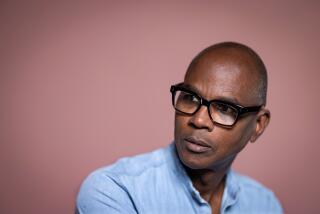Bradford Artfully Leads Free-Spirited Quintet
- Share via
Cornetist-trumpeter Bobby Bradford is a veteran of the avant-garde jazz wars of the ‘50s, ‘60s and beyond. A member of the Ornette Coleman quartet in the early ‘60s, he also had a lengthy relationship with the late clarinetist John Carter, another player dedicated to expanding the envelope of jazz improvisation.
Bradford’s most appealing quality always has been his capacity to bring warmth and audience connectiveness to virtually everything he plays, even in the moments when his music reaches toward the outer limits. On Wednesday night at Rocco Ristorante in Bel-Air--a room that is consistently presenting some of the most intriguing, if lesser-known, young artists in the Southland--Bradford was at his best. Leading a quintet that included two talented players, saxophonist Chuck Manning and guitarist Ken Rosser, in the front line, Bradford did a superb job of managing a musical flow that moved freely between composed segments, free soloing and collective improvising.
Bradford’s solos, in an unannounced set of improvisationally oriented numbers, were crisp and to the point, their impact enhanced by his splendid sound and his capacity to find attractive bits and pieces of engaging melody. Manning was the perfect companion, extremely fluent on both tenor and alto saxophones, often whipping off furious storms of notes, sliding glissandos and honking multi-phonics. But he also tempered his more fiery sections with some surprisingly sweet passages, especially on the higher, alto instrument.
Rosser was impressive, one of the rare guitarists exploring the edgy areas of the avant-garde, and bassist Roberto Miranda flew all over his acoustic instrument, strumming, snapping strings, often playing with blinding speed.
The only glitch in this fascinating performance was Alex Cline, an otherwise talented player whose drumming--on this evening, at least--sounded surprisingly incompatible with the focus of the music. Failing to adapt to the room’s acoustics, his volume level continually overpowered the other instruments--a problem exacerbated by his insistence upon laying down repetitious, pattern-oriented rhythms that frequently clashed with the open, free-roving qualities of the other players’ soloing.
More to Read
The biggest entertainment stories
Get our big stories about Hollywood, film, television, music, arts, culture and more right in your inbox as soon as they publish.
You may occasionally receive promotional content from the Los Angeles Times.










